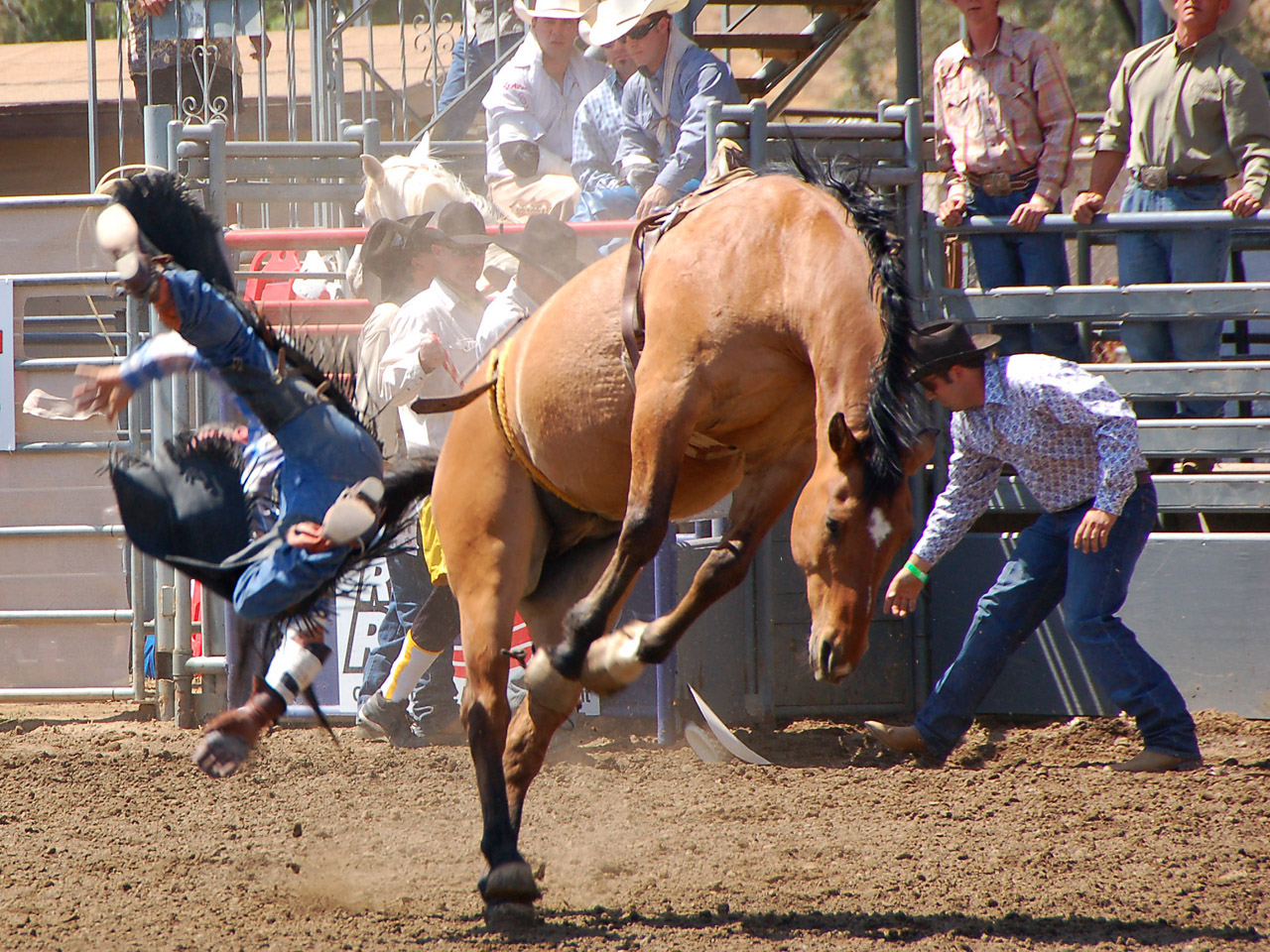As far as I know there is only one guaranteed way not to fall to fall off a horse – “don’t get on one”. If you have been around horses for a while you will realize that, like us, they are not only living, breathing creatures but they also have feelings and ideas. Like us, they react to a lot of things that happen in their environment and like us, they have one of two general responses – fight or flight. Most often horses use flight as their first means of self-preservation and when they do they don’t worry about accommodating you in the process.
Imagine if you will, there you are, out for a nice quiet trail ride and suddenly, out of the blue – your horse spooks. Wait minute though, it isn’t usually like that, your horse probably told you it was worried, it might have signalled it was aware of potential danger. It may have become more alert, stiffening through the body, collecting its feet underneath itself, raising its head becoming more alert, etc. You probably didn’t listen or pay attention to what your horse was telling you, but that’s a whole other issue.
Your horse quickly sets back on its hind – the explosive engine – ready to take flight, he starts to the left but realizes there’s more opening to the right, so he jambs his left front foot deep into the ground and with a mighty push switches direction, without waiting for you sign-off on the work order, spinning at incredible, survival, speed to the right and he’s gone. And you? Well you are on the ground checking to see if anything is broken before standing up to find your horse calmly eating grass about twenty feet away and thinking “boy this grass is tasty”.
Horses live in the moment, they don’t plan and scheme to spook. But once again that’s another story for another blog. How, then, could you have avoided falling of your horse in that situation? There are a couple of things that might help, quite aside from training both you and your horse. The most important one is attitude. Many folks on a trail ride take a detached attitude to what they are doing, they are busy chatting with their friends and not paying attention to the horse or what is happening in the environment. I know of some folks who even go as far as to plug headphones into their ears to listen to their favourite music.
We should all be paying attention to what we are doing, what our horses are doing and what is happening in the environment around you (mental attitude). Make sure you are sitting in a balanced position at all times when riding (physical attitude). Sometimes horses lose their attention too, and when you are bent over, perhaps unexpectedly, reaching for a stirrup adjustment you might catch your horse off guard, couple that with a squirrel running up a tree, rattling leaves on its way, and you may have a recipe for a spook. Bent over to the side like that, it’s hard to sit a sudden maneuver.
Then there’s the same problem your horse had, and this is more important than you may realize, do you run or fight? Most people run, they don’t want to be on the back of horse that is moving around unexpectedly, they accept their fate and look for the quickest way to get to terra firma. Other folks fight to stay on, not wanting to be on the ground on any but their own terms. Fighters probably have a better chance of not getting hurt if they are fighting to stay on and not fight with the horse to stay on.
Your reins are probably not going to help you stay on a spooking horse, now you don’t want to drop them, but your priority should shift to staying in the saddle and keeping balanced, going with the horse not trying to haul him back around and exacerbating his sense of flight. Pulling on the reins might get you into more trouble than you need, particularly in the first few seconds of a spook by reinforcing the sense of panic.
Humans, despite being able to do what we call “multi-tasking,” can only focus on one thing at a time, you can switch your attention quickly between two activities or stimulus but at any given moment only one is getting your attention. So, will it be fight or flight? Will you look hopelessly to the ground accepting your fate and trying to find a soft-landing spot, or will you grab the saddle and a piece of mane hair and work on setting your balance on your horse? Of course, there is no certainty you will stay on your horse if you chose the second option, but there is more certainty you will come off if you chose the first.

